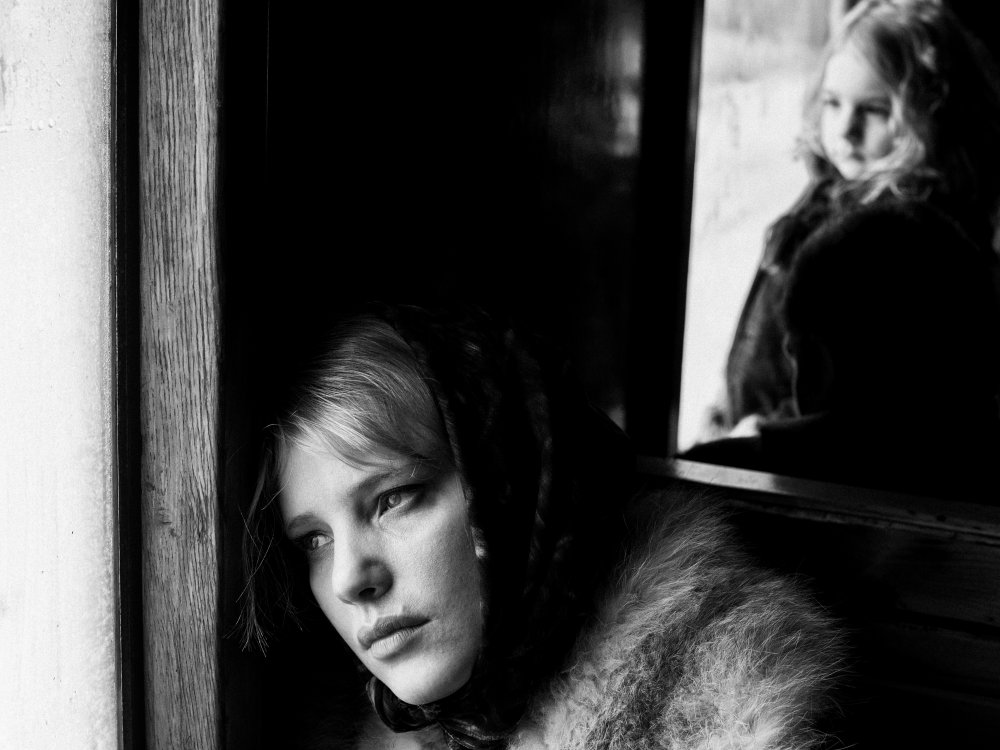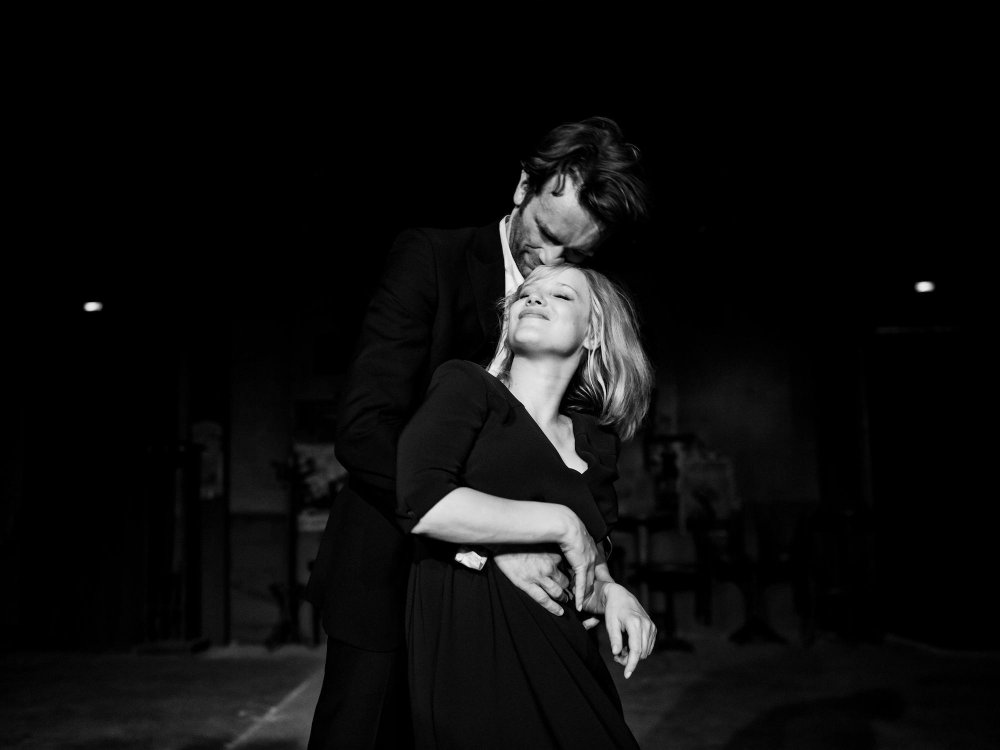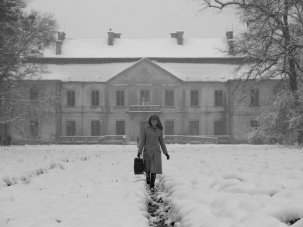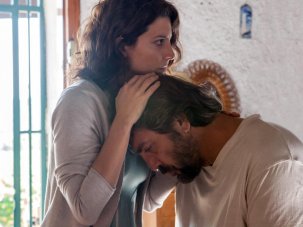Ordinary love or amour fou? How you answer that question tests how romantically inclined you are, whether you would dismiss a mutually deranging affair as infatuation or identify with it as the state in which many people feel most alive. Cold War puts us into the whirlwind of just such a fierce concupiscence and collision of mismatched souls.
Poland/UK/France 2018
84 mins
Director Pawel Pawklikowski
Cast
Zula Joanna Kulig
Kaczmarek Borys Szyc
Irena Agata Kulesza
Michel Cédric Kahn
Juliette Jeanne Balibar
Original Polish title Zemna Wojna
► Trailer
The first setting is late 1940s post-war Poland. The action begins in a moment of seeming innocence with handsome, intense Wiktor (Tomasz Kot), a talented pianist, composer, arranger and conductor touring villages with gimlet-eyed colleague (and lover) Irena (Agata Kulesza) in search of folk-based musical talent, doing field recordings. At an audition, Zula (Joanna Kulig), an audacious self-assured blonde youth, cons her way into a duet with a more purely talented singer. Irena would reject her, telling Wiktor she is just out of prison for murdering her husband, but Wiktor says “she has something.”
They all arrive at a new institute for the creation of a pure socialist art of the people. Wiktor and Irena run it creatively, but as they mould all the talent they’ve found into a performing folk art troupe in traditional national costumes with Zula as the star, the administrator Kaczmarek (Borys Szyc) forces them to consider also performing a hymn to Stalin and agricultural reform. Irena objects and is soon dismissed. When the troupe is booked to perform in Berlin, at a time before the wall was built, Wiktor wants Zula to escape with him into West Berlin. Thereafter borders are crossed many times in many countries; lines of fate are broken and re-intertwined, jealousies and betrayals flourish and die out.

The early part of the film plays out like an endlessly seductive musical rendered in the most gorgeous monochrome cinematography I have seen for some time. You feel many visual influences, Brassai’s nighttime Paris photos are prominent among them, there are Tarkovsky-like compositions and Joseph Losey’s film Eve is close to its mood, but to me this is the better film. The choreography and rhythm of dance, shots and editing is a constant thrill and delight.
This surface whirl of fascination would not work without the luminous presence of actor Joanna Kulig, who on this performance is a powerful enough to become the Jeanne Moreau de nos jours. As pugnacious as she is enthralling, she centres the film as a kind of wild child bullshit detector who cannot co-exist with the insufficiently urgent Wiktor but cannot do without him either. The too-refined Wiktor (played with such beautiful stillness by Kot) is obsessed with her to the point where he will risk freedom just to be in the same concert hall.
This hopelessly unsuited couple are fictionalised versions of Pawel Pawlikowski’s own parents and through them we experience a near-equal disenchantment with socialist and capitalist mores and morals. The cool delirium of the 1950s jazz age in the West fades as the reality of cross-border desire bites. You could say that the film is most likely to appeal to baby boomers such as myself, for whom the era described was the backdrop to our childhood, but this film fizzes with a devotional energy and political relevance that will transcend any such pigeonholing. It was the first film I saw of the Cannes competition, and I hope it wins big.
-
The Digital Edition and Archive quick link
Log in here to your digital edition and archive subscription, take a look at the packages on offer and buy a subscription.








